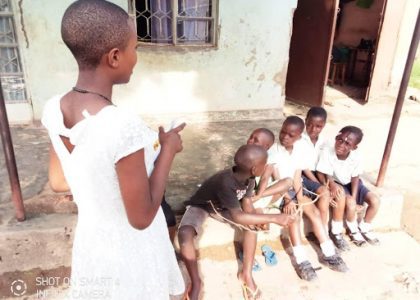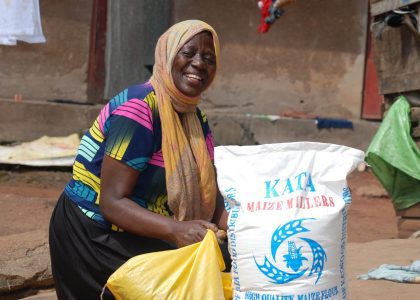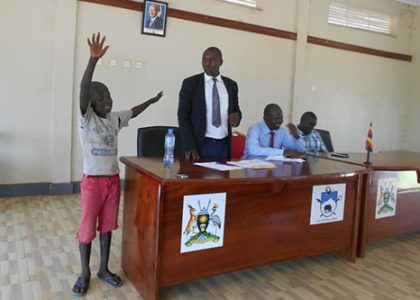What you need to know about Child Labor in Uganda
In recent years, Uganda has experienced a significant surge in child labor, rising from 14% in 2016/17 to 39.5% equivalent to 6.2 million children in
Today Joy For Children Uganda (JFCU) joins the rest of the world honouring refugees around the globe and celebrating their strength and courage of these people who were forced to flee their home countries to escape conflict or persecution.
Due to poverty, gender discrimination, poor parenting and lack of knowledge, 25% of adolescent girls in Uganda are currently pregnant or have already given birth to their first child. Teenage pregnancy has various negative impacts like severe health complications and early school drop out of girls.
Shafiq is one of the Children with Disabilities living in the slums of Bwaise, and supported by Joy for Children Uganda. He lives with his mother solely and never stops bringing her mother smiles and joy as an only child.

Adder is 15 year old junior leader that was trained by Joy for Children. She was also previously on the sponsorship program until she finished her primary 7. Her mother is one of the members and leaders for Bukoto community support group for women.

On 11th May, when we visited Kivulu slum community, on seeing me, maama Angel forged a wry smile out of courtesy! It was all written in her smile even before she spoke to me about her situation.
More than 20 women including lactating mothers have been charged with violation of COVID-19 emergency measures by the Grade One Magistrate’s Court in Lira District.

Joy for Children – Uganda (JFCU), a non-profit children’s rights organisation, has been introduced at the engagement meetings with leaders along the North Eastern Road Corridor Asset Management Project (NERAMP) corridor.
Children or young people in particular are very fragile because they don’t have much choice in the circumstances around them. They will either reap the benefits of a good system or suffer the repercussions of a bad system but can’t influence either. Children are the human resource capital that should be nurtured well if they are to be fruitful or productivity for humanity to progress well.
Peer to Peer Uganda(PEERU), with support from various partners organized the 2nd National Stakeholders Dialogue on Adolescent health to provide a platform for various key stakeholders to discuss how best to reach out to adolescents (10-19 years)
The government of Uganda through ministry of gender, labour and social development has put in place various mechanisms to address violence against children (VAC) prevention and response. Interventions are inclusive in nature as they start right from the villages to national level.